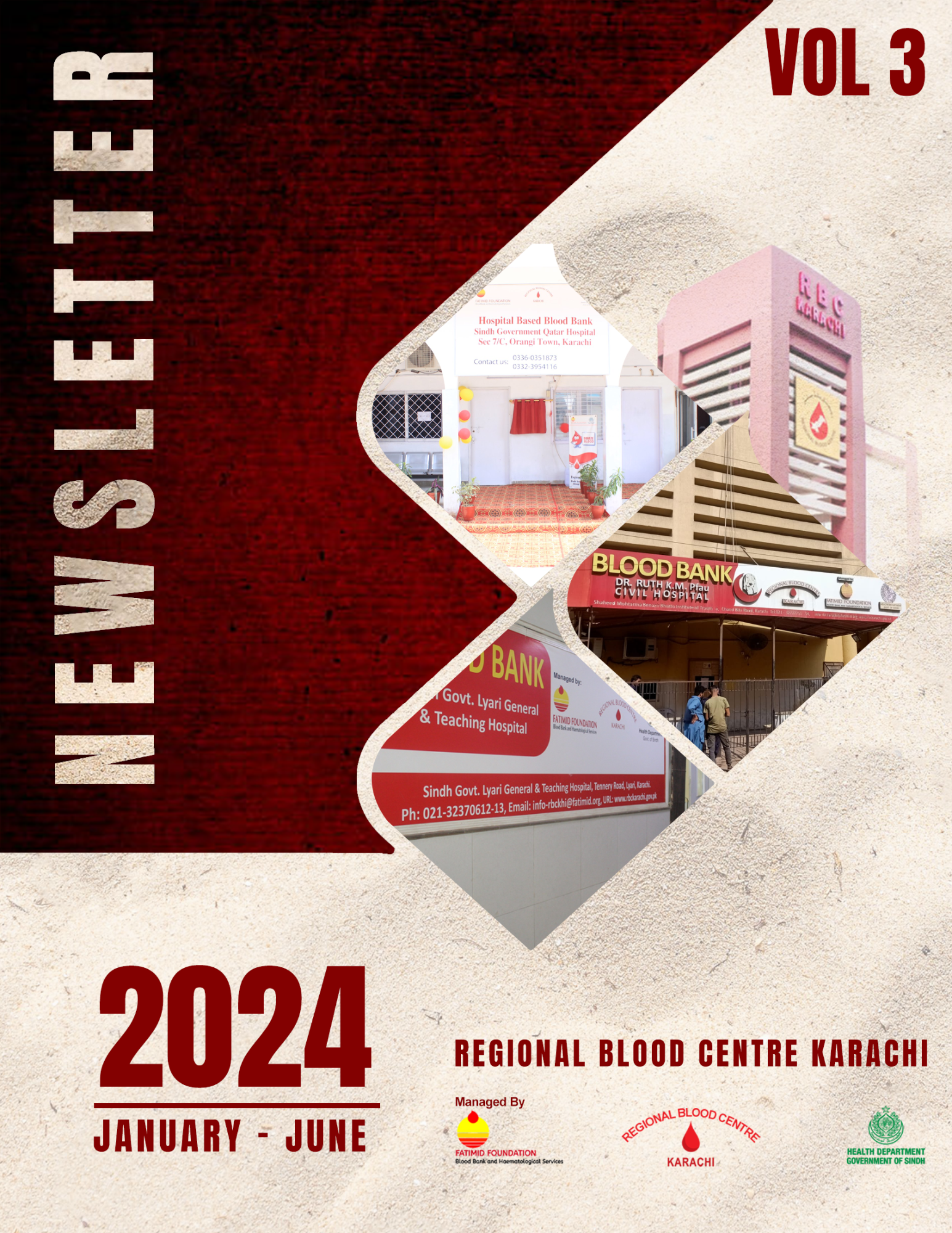The province of Sindh, the second most populous province in Pakistan, comprises of a 60 million population with 24 administrative districts. The budget of SBTP Phase I for Sindh was PKR 251.97 million, through which four RBCs were constructed and equipped. One each in Karachi, Jamshoro, Sukkur and Nawabshah, to supply blood products to the linked 24 existing Hospital Blood Banks which have been upgraded and renovated for this new role. The Sindh health department decided to hand them over to the private sector.
The Regional Blood Centre (RBC) Karachi was inaugurated on November 27, 2019, by the Sindh Health Minister Dr Azra Pechuho along with German Consul General in Karachi Eugen Wollfarth, Christian Kraemer, Regional Director KfW, Frankfurt, and Wolfgang Moellers, director KFW Pakistan. It has been outsourced to Fatimid Foundation under public-private partnership to promote quality transfusion services for the people of Karachi. The RBC has been developed by the German government grant through KFW-German Development Bank to the “Safe Blood Transfusion Project”.
The RBC Karachi is equipped with modern, sophisticated medical equipment and has well trained and qualified staff to ensure the safe transfusion of blood as per the international standards. RBC has a capacity of collecting 50,000 blood donations per year and serves as blood procurement and distribution centre ensuring quality systems to regulate all activities which involve mobilization and retention of voluntary and regular blood donors, maintenance of donor database, collection of blood donations as well as processing, screening, testing, component preparation and storage of the prepared components. The blood will be collected from voluntary blood donors on walk-in basis as well as through blood camps arranged by the donor motivation and recruitment teams of RBC visiting educational institutions and other public places. The collected blood will be screened for Hepatitis B, C, HIV, on Chemiluninescense (CLIA) technology. Additionally blood will also be screened for syphilis and malaria from every unit of blood collected at least three blood components are produced to save three different lives.


